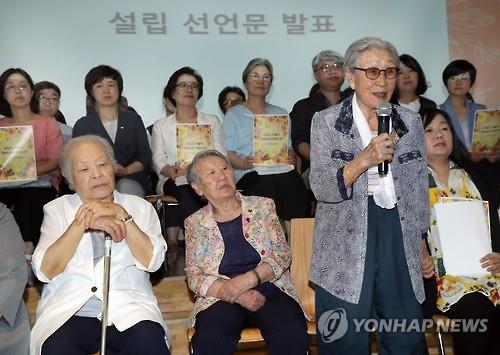SEOUL, July 27 (Xinhua) — South Korea's gender equality ministry said Wednesday that a foundation for South Korean victims of the World War II sex slavery under the Japanese colonial rule will be launched on Thursday, following agreement between Seoul and Tokyo in December last year over the establishment.
The Foundation for Reconciliation and Cure will be open from Thursday, according to the Ministry of Gender Equality and Family. The foundation, a non-profit organization under the ministry, plans to carry out projects to cure the scars and recover the dignity of the so-called "comfort women."
The establishment came as South Korea and Japan agreed on Dec. 28, 2015 to set up a foundation to support the "comfort women," a euphemism referring to women coerced into sexual servitude for Japanese military brothels before and during World War II.
Historians say that as many as 200,000 women, mostly from the Korean Peninsula as well as from China and Southeast Asian nations, were forced into sex enslavement for Japan's Imperial Army during the devastating war.
Among 238 South Korean victims who identified themselves as former sex slaves, only 40 are alive. The Korean Peninsula was colonized by the Imperial Japan during the 1910-1945 period.
Under the Dec. 28 agreement, Japan pledged to pay 1 billion yen (about 8.3 million U.S. dollars) from its state funds to build the foundation in South Korea. In return, Seoul agreed on a "final and irreversible" resolution on the wartime sex slavery issue.
South Korean victims and advocacy groups have continued rally every Wednesday in front of Japanese Embassy in Seoul, calling for the retraction and re-negotiation of the Dec. 28 agreement. The victims have expressed reluctance to receive any money from Japanese government coffers.
Japanese Prime Minister Shinzo Abe expressed his apology and remorse through the agreement, but he has denied any forcible recruitment of sex slaves by the Japanese government. Seoul has said that "comfort women" were forcibly recruited against their will by the Japanese military and government.
